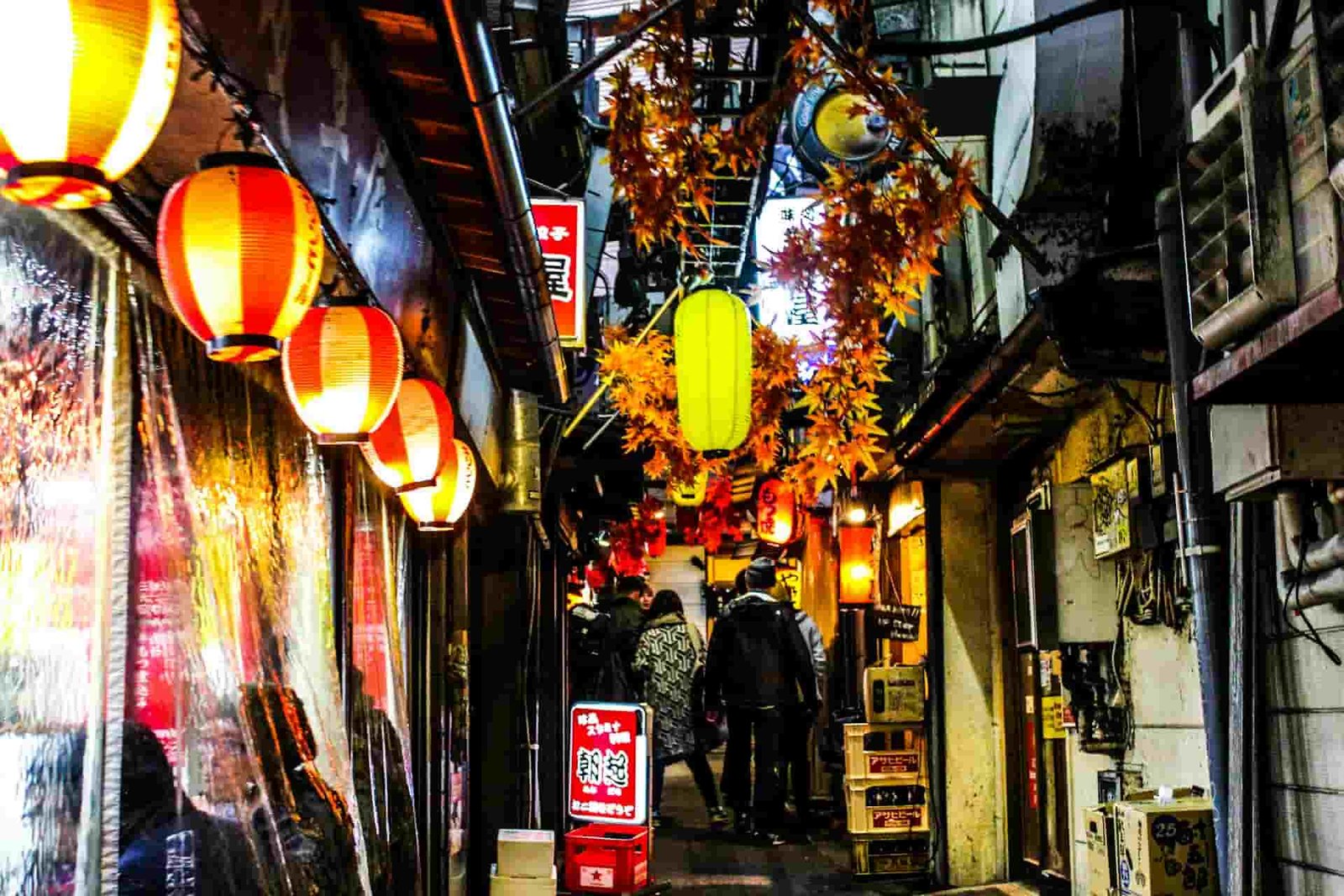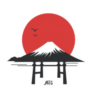Nomunication: Japan’s Tradition of Work-Related Drinking
In Japan, nomunication, or after-work drinking, is more than a way to unwind.
The often obligatory drinking events come with carefully observed, unwritten rules –
which include the chance to tell your boss exactly what you think of them.
You may have encountered “nomification” without being aware of what was happening.
Did you, for example, notice the lively group of office workers letting their hair down (or at least loosening their neckties) at the next table at the restaurant? It was 6:30 p.m., and they were already on their third beer. On your way home around midnight, you saw four of the group still drinking at a bar. You might be on holiday. They are seeing out Tuesday, dedicated to keeping on going well into Wednesday.
Welcome to nomunication — the blend of the Japanese nomu (飲む, “to drink”) and “communication.”
This work-related drinking culture has been an integral part of Japanese corporate life for decades, where after-hours drinks with the boss were as important for your career as what happened at your desk.
While things are changing, work-related drinking culture still packs capsule hotels full of office workers midweek and Tokyo’s last trains with tipsy salarymen.
A brief history of the nomikai
To find the starting point of after-hours drinking culture in Japan, you have to hit the big “rewind” button.
We are going back to Edo times, where merchants and artisans drank in communal settings after work. Even back then, it often involved izakaya (Japanese-style pubs) that doubled as community hubs.
The modern roots of nomikai go back to Japan’s post-war economic boom. This was when lifetime employment and the senpai/kōhai (senior/junior) system were cemented as central social units of the workplace. Going drinking together became a central teambuilding tool.
By the roaring 1980s, nomunication had practically become an institution. Corporate warriors worked long hours, then headed straight to bars, snack clubs, hostess bars, or karaoke rooms. Cash was splashed and teams bonded, networked, and drowned stress in alcohol.
The concept of moving from ichijikai (first party) to nijikai (second party) to sanjikai (third party) became so entrenched that city infrastructure adapted: capsule hotels became havens for those who missed the last train, and late-night eateries thrived on the salaryman crowd.
Nomunication as a cultural pressure valve
The value of nomucaiton will depend on which Japanese person you ask. Younger generations, in particular, are questioning the benefit of going straight from long working days into long drinking nights.
Most would say that the events serve several social functions.
In many Japanese offices, casual conversation during the workday is minimal. Professional interactions tend to be formal, polite, and hierarchical. If you want to get a better understanding of some of the underlying reasons, look into the Japanese concepts of honne and tatemae.
Nomikai offers structured ways to break those barriers and release tensions.
Managers may also use these gatherings to get a sense of how employees interact, whether they’re team players, and how they handle themselves socially.
Since some companies lack formal evaluation systems, the bar stool can become a kind of informal appraisal chair. That means saying “no” to a nomikai — especially at a traditional firm — can sometimes carry real career consequences.
Similarly, the events also provide a safe space for employees to express how they feel about the company, colleagues, or even their superiors.

The anatomy of a nomikai
While nomikai structures vary by company and occasion, they usually follow a set pattern of locations:
- Zerojikai / Reijikai (0次会) – The “pre-game” with a smaller group before the main event. Usually at a bar.
- Ichijikai (一次会) – The official party, usually at an izakaya with shared plates, all-you-can-drink (nomihōdai) plans, and plenty of toasts.
- Nijikai (二次会) – The afterparty at a different venue, often more relaxed. Again, bars are a likely choice.
- Sanjikai (三次会) – The after-afterparty, which may or may not involve karaoke. No, it will almost certainly involve karaoke. And the last train is not gone.
- Yojikai (四次会) – At this point, it’s basically morning. You will likely collapse for a while (hopefully you made it to a capsule hotel) and then head straight to the office.
At the end of each stage, you might see traditions like the ipponjime (一本締め, a single ceremonial clap) or sanbonjime (三本締め, a rhythmic three-times-three-plus-one clap) to mark closure before moving on.
Unwritten rules of the nomikai
While the goal is to relax and bond, the nomikai comes with its own etiquette. As with other things in Japan, the rules have become somewhat laxer, and younger generations follow them less strictly. Following them can earn you respect if you somehow find yourself invited to join, so be on the lookout for things like:
- Seating: The most senior person gets the kamiza (上座, “best seat”), farthest from the door. The lowest-ranking member sits nearest the door (shimoza). (jp).
- Pouring: Pour for others, starting with your superiors. When someone pours for you, hold your glass with two hands and tilt it slightly.
- Cheering: When clinking glasses for a kanpai (乾杯, toast or cheers), keep your glass slightly lower than that of someone senior to you.
- Topping: Watch your colleagues’ glasses and offer refills, while making sure you don’t mix temperatures (e.g., topping cold sake into warm).
- Waiting: Don’t sip until everyone has a drink and the kanpai has been made.
- Paying: Senior members often cover most or all of the bill.
Participation pressures
Recent years have seen increased push-back against nomikai. This is especially against events led by superiors. To briefly explain, it used to be that if your superior (senpai) or boss wanted to go drinking, you could not say no. Also, you couldn’t go home before them. This pattern has, luckily, changed somewhat, and saying no to nomikai has become more broadly accepted.
Some events, like bonenkai (year-end parties) and shinnenkai (New Year’s parties), are still considered mandatory at many companies. Others may be to welcome new staff, celebrate promotions, or happen upon completing major projects.
Foreign firms (gaishikei) often place less emphasis on nomikai, while traditional Japanese companies may still have multiple outings a month.
Criticism and health concerns
The nomikai’s role in fostering relationships is well documented, but so are its downsides:
- Work-life balance – Late nights cut into family time and rest, discouraging parenting and personal commitments. It has been mentioned as contributing to Japan’s low birth rates.
- Gender inequality – Women, particularly mothers, are often excluded or pressured in ways that undermine their careers.
- Health risks – From binge drinking to exacerbating alcohol intolerance symptoms.
- Public intoxication – Acceptable to a point in Japan, but not without career and social risks.
Even some corporate leaders are calling for change. In 2023, Mitsubishi UFJ executive Saiko Nanri announced her team’s nomikai days were over, citing unproductive after-hours socialising and its impact on working parents.
Similarly, younger generations have a very different view on nomication, oftn preffering to limit it – or getting rid of it completely.
The softer side of nomunication
Despite the rules and pressures, nomikai can also be fun, memorable, and a rare chance to speak freely with colleagues. Hierarchies flatten, jokes fly, and even the most buttoned-up manager might reveal hidden depths or talents, like a flair for karaoke or fondness for pickled squid.
In one case, I experienced the complete transformation of our company accountant at a nomikai. He had brought along his guitar, plugged it into a mini-amp, launched a backing track and laid into a four-minute hair metal guitar solo complete with full fretboard hammer-ons (if you play guitar, you know) and tongue-poking that Kiss would have been proud of.
Then there is the honesty part of a nomikai. The events are like the “what happens in Vegas stays in Vegas” of office and work-related conversations. So do not be surprised if Yumiko, at the sanjikai, tells her boss exactly where to stick his latest project idea. Or, for that matter, being met with black stares and “I don’t remember that happening” in the office if you try to talk to them about it on the following Monday.
